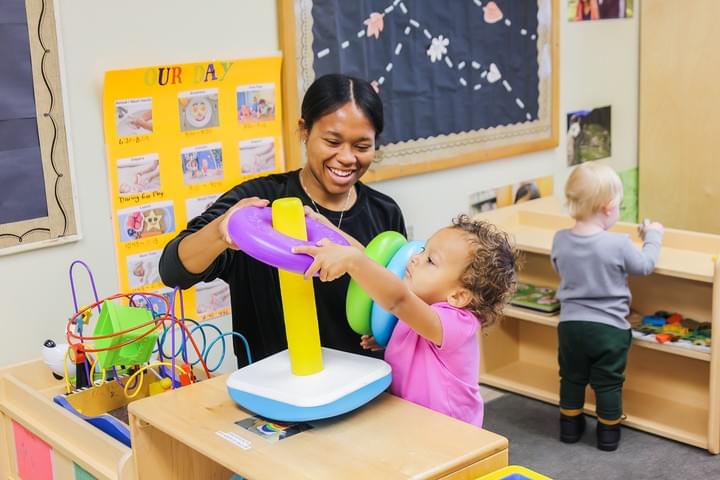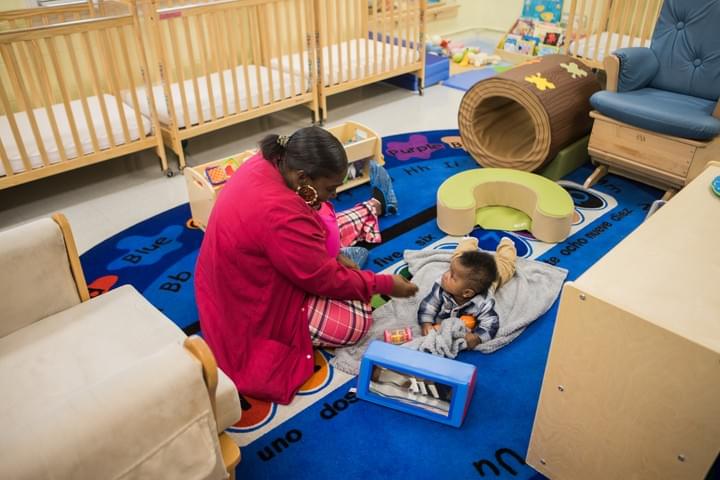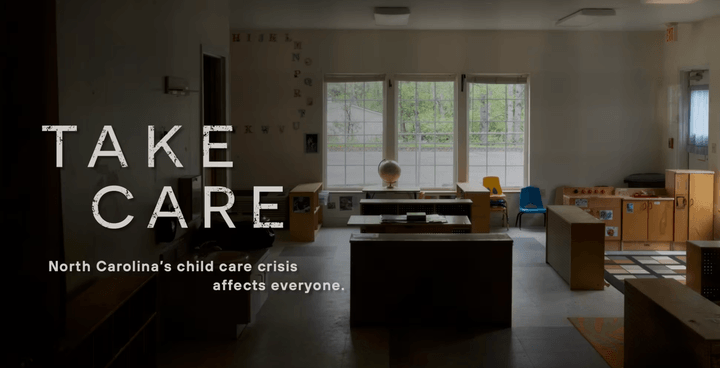
- News & Reports
- …
- News & Reports
- News & Reports
- …
- News & Reports
Early Childhood Education in the News

CCRI Wraps Up First Child Care Academy in Mecklenburg County
Child Care Resources, in partnership with Project 658 and CPCC, just wrapped up the first Child Care Academy in Mecklenburg County!
The participants in the inaugural class are all women who have immigrated to the US, currently participate in programming at Project 658, and are interested in teaching in child care. They wanted to learn more about the child care industry and have basic training to be better prepared to begin their careers as teachers.
Click here to learn more.

CCRI Launches Statewide Online Child Care Search Portal for Families
CCRI has launched FindChildCareNC.com to make it easier than ever for families to search for child care. This tool brings together every licensed program in the state into one easy-to-use platform.
Click here to read the press release.

New Mexico to Provide Universal Access to Child Care
Starting Nov. 1, New Mexico will become the first state in the nation to offer no-cost child care to every family, regardless of income.
“There are so many people across the country that say universal child care is impossible — it's not impossible,” the governor said.
Click here to read the full story from the Santa Fe New Mexican.

Why So Many Child Care Centers are Closing
Across the country, child care centers are struggling as they never have before. A perfect storm of rising costs, worker shortages, and the expiration of federal and state grants makes it extremely difficult for these businesses to operate.
Click here to read the full article from TIME.

CCRI Names New Chief Executive Officer
Child Care Resources Inc. has announced the hiring of Carolyn Hazeldine as Chief Executive Officer.
Hazeldine brings 32 years of progressively senior experience in both early childhood education and child care resource and referral. She has served as CCRI’s Chief Operating Officer since 2019.
Click here to read the press release.

Longtime CEO to Retire from CCRI
After nearly 28 years leading Child Care Resources Inc., President & CEO Janet Singerman will be retiring from the organization.
"Janet has worked with passion, purpose, and tenacity while leading CCRI and throughout her career to increase access to opportunity for women and children by improving access to quality child care for all who rely on it – families, employers, and communities," said Rodney Gaddy, CCRI Board chair.
Click here to read the press release.

Survey highlights support for extending child care subsidy eligibility to child care workers
A new survey of child care providers across North Carolina demonstrates broad support for creating a policy that expands eligibility for child care subsidies to employees of licensed or regulated child care programs regardless of income. More than four in five of programs surveyed said the program would help them hire and retain needed staff and more than two-thirds said it would help them stay open.
Click here to read more.

Documentary Explores NC Child Care Crisis
"Take Care" is a new short documentary that examines North Carolina’s child care crisis through the voices and stories of families, early educators, and community leaders.
Click here to watch the documentary.
News Archives
Legislature’s Hurricane Helene package lacks child care funding (EdNC)
NC child care director speaks at DNC. Here’s the thing she says Democrats should know (Charlotte Observer)
Child Care Advocates Disappointed in NC Budget (Charlotte Ledger)
Screen Time Linked With Developmental Delays in Toddlerhood, Study Finds (CNN)
Child Care Could Soon Become Harder to Find and More Expensive (WFAE)
NC Child Care Industry in Crisis: Prices Too High for Parents and Pay Too Low for Staff (Charlotte Observer)
Child Care Workers in NC Rally for More Funding as Federal Grants Run Out (WFAE)
Survey: NC Child Care Providers Concerned About Quality and Affordability With Assistance Set to End (Press Release)
Your Child’s Academic Success May Start With Their Screen Time as Infants, Study Says (CNN)
Child Care in America Continues to be 'One of the Biggest Challenges' for Working Women (Yahoo! Finance)
Child Care Workers are Vanishing, and It's Hurting the Entire Economy (CNN Business)
Child Care, a Critical Service for Families, Remains Inaccessible for Many (Charlotte Talks)
With Child Care Unaffordable and Hard to Find, Many Parents Struggle to Stay Employed (CBS News)
Help for NC Child Care Programs (Axios Charlotte)
NC Child Care Programs Struggle to Hang On (Axios Charlotte)
NC Child Care Industry Still Reeling from COVID Setbacks (WFAE)
Many child care providers don't earn a living wage — and that was true even before the pandemic (CNBC)
Does quality early childhood education lead to more successful lives? (National Academy of Sciences)
The pandemic upended child care. It could be devastating for women. (Washington Post)
Where We Serve
Mecklenburg, Cabarrus, Union,
Rowan, and Stanly counties
© 2026 Child Care Resources Inc.








